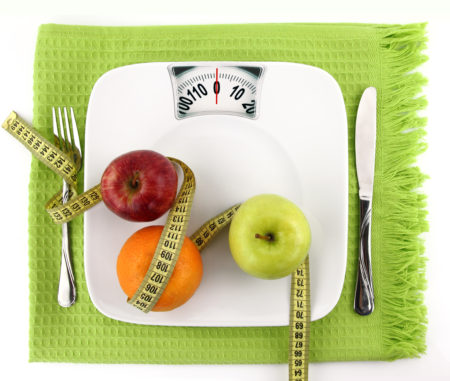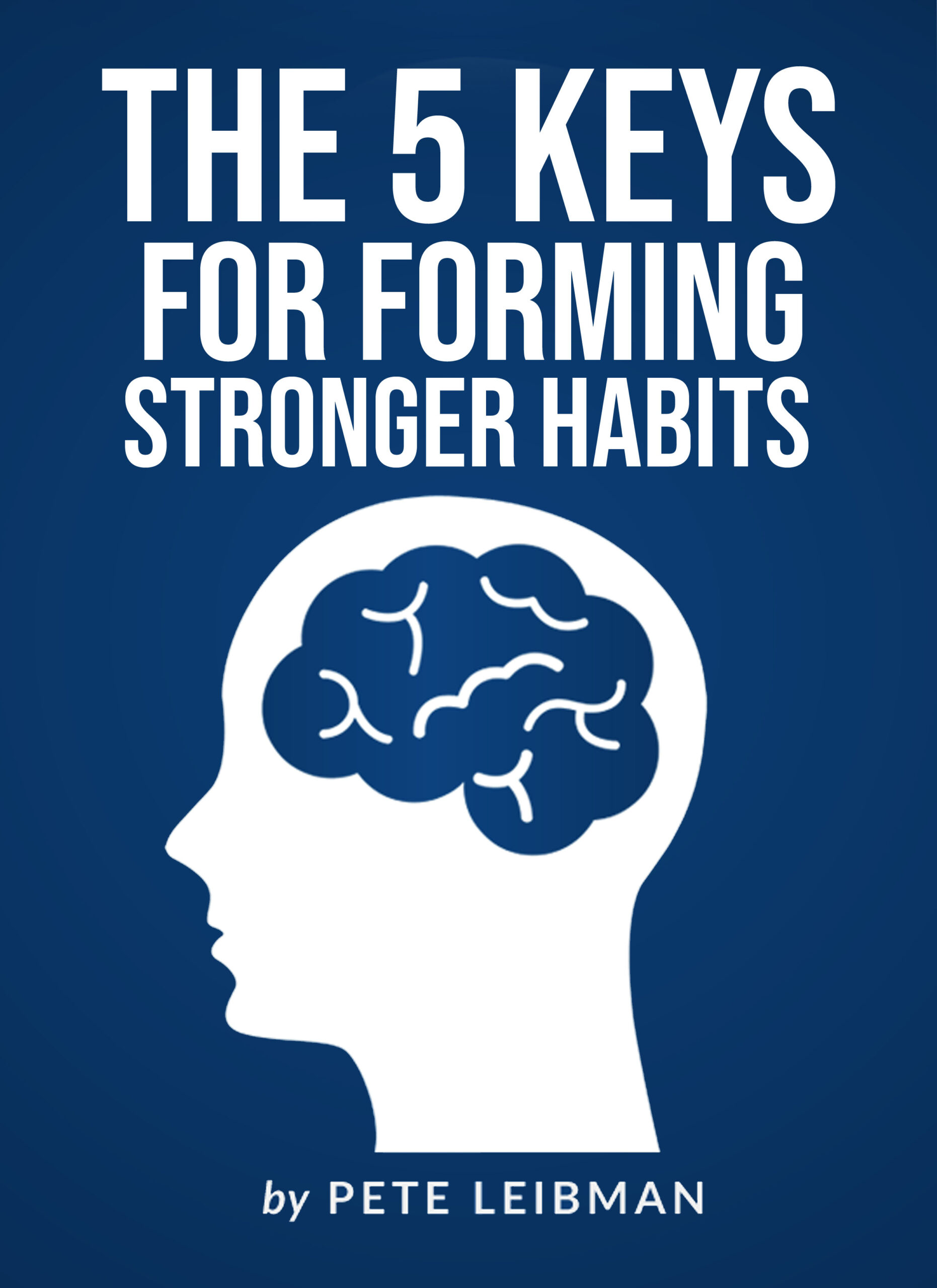
Did you know that over 40 million Americans go on a diet each year?
Even if you aren’t part of this group, chances are that someone very close to you is. While dieting efforts are driven by good intentions and a desire to lose weight or get healthier, these behavior change efforts almost always fail. Some studies estimate that over 95% of diets don’t last.
Given that I write articles and books about forming stronger habits, friends often ask me for advice about their approach to nutrition. Recently, a friend asked for my opinion on his latest diet.
“What do you think of Whole30?” he asked.
Sidenote: Whole30 is an “elimination diet,” in which you are only allowed to eat meat, seafood, eggs, vegetables, fruit, and natural fats, spices, and seasonings. You have to completely and immediately remove the following from your diet 1:
- All heavily processed foods (i.e. muffins, candy, donuts, cookies, etc.)
- All added sugar- real or artificial (i.e. Splenda, Equal, Nutrasweet, etc.)
- All dairy, including milk, cheese, and yogurt
- All grains, including wheat, rye, oats, rice, and even gluten-free quinoa
- All legumes, including beans, peas, lentils, and peanuts
- All alcohol and tobacco
Back to the story… When my friend asked me his question, I gave him my stock answer whenever someone asks for my opinion on a diet: “I don’t believe in diets,” I said. “I recommend that you focus on habits.”
“Ok, but I love Whole30,” he replied.
“Well, I’m glad it’s working for you. How long have you been on it?” I asked.
“Oh, I’m not on it anymore,” he said. “I only did it for a few weeks. Actually, to be honest, I’ve been back to eating a lot of junk food lately.”
Why Fad Diets Don’t Work
If you want to feel better, look better, and perform better, you do not need to overhaul your nutrition plan all at once. In fact, you are much better off taking a more gradual approach. Fad diets do not work for many reasons. Here are three of them:
- Fad diets are too restrictive and abrupt.
Instead of a gradual approach, they force you to make major changes immediately. Whole30 is one of the most restrictive examples. They address their rigidity by stating the following on their web site:
“Don’t you dare tell us this is hard. Fighting cancer is hard. Birthing a baby is hard. Losing a parent is hard. Drinking your coffee black. Is. Not. Hard. You’ve done harder things than this, and you have no excuse not to complete the program as written. It’s only thirty days, and it’s for the most important health cause on earth—the only physical body you will ever have in this lifetime.”2
Regardless of how you feel about that paragraph, does healthy eating really need to feel like a boot camp and be so strict? Most people don’t like being told exactly what they can and cannot do for 100% of the time anyway.
2. Fad diets set you up for eventual failure.
When you go on a diet, you are basically telling yourself, “This is temporary. I only need to eat like this for a period of time, and then I can go back to eating what I really want to eat.” There is no real, long-term commitment to change your behavior. As with my friend and his Whole30 experience, he only lasted two weeks. Then, he was back to exactly what he was doing before- eating a lot of junk food.
3. Fad diets ignore the real problem(s).
As discussed here, bad habits don’t just happen. Bad habits (in regard to nutrition or anything else) are caused by cue(s) that trigger unhealthy behaviors. Your cue(s) for bad eating habits could be emotional (i.e. stress), physical (i.e. being surrounded by unhealthy food at home and at work), social (i.e. being surrounded by friends or family who constantly make unhealthy choices), or some combination of these factors and others. Fad diets ignore your underlying challenges. They just ask you to rely on blunt willpower to change your ways.
What about those dieting success stories?
Fad diets are quick to point out their “success stories” … “Jim Smith lost 7 pounds in 3 days!” … “Mary Thomas lost 22 pounds in 6 weeks!” … and on and on.
What they don’t tell you is that rapid weight loss usually comes from dehydration and lost muscle, not from large reductions in body fat. In addition, the faster you lose weight, the more likely you will gain it right back. In fact, research by Dr. Traci Mann of UCLA has found that more than 40% of people starting a diet will actually gain weight.3
What should you do instead?
Given the title of this web site, you can probably guess my answer: focus on habits, not diets.
Different nutritional plans can be effective, as long as you primarily consume real foods with natural ingredients. Eating healthy need not be as complicated and rigid as many people make it out to be.
If you are not currently eating a natural, nutrient-dense breakfast every day (or on most days), you could start there and focus on that alone for now. Take it one change at a time, and add on the next change whenever you are ready.
A habit-based approach is also a key recommendation by Precision Nutrition (PN), the world’s #1 nutrition coaching and education company. I’m a certified coach through PN, and they have helped thousands of average men and women make lasting changes to their eating habits. PN also works with Olympians, professional athletes, and professional sports teams in the NFL, NHL, and NBA.4
As PN’s co-founder, Dr. John Berardi, writes, “We prefer a nutritional progression model (which builds habits intelligently and sustainably over time) versus asking people to ‘follow a diet’ (which means doing a full lifestyle overhaul on Day One).”5
P.S. If you enjoyed this article, you can share it by clicking one of the social media icons on this page.

Free eBook and Newsletter
Download my free 40-page eBook on “The 5 Keys for Forming Stronger Habits.”
You’ll also receive my free weekly newsletter on how to become your strongest self.
Your email is safe. Unsubscribe anytime.
About the author: Pete Leibman is the Creator of StrongerHabits.com. He is a best-selling author, keynote speaker, executive recruiter, athlete, and peak performance coach. His work has been featured on Fox News, CBS Radio, and CNNMoney.com, and over 500,000 people across the world have read his articles.
References for this article:
- THE WHOLE30® PROGRAM, https://whole30.com/whole30-program-rules/.
- THE WHOLE30® PROGRAM, https://whole30.com/whole30-program-rules/.
- Daniel J. DeNoon, “Diets Don’t Work Long-Term,” WebMD, April 11, 2007, http://www.webmd.com/diet/news/20070411/diets-dont-work-long-term#1.
- John Berardi, “11 things I’ve learned coaching elite and professional athletes,” Precision Nutrition, accessed on August 7, 2017, http://www.precisionnutrition.com/coaching-elite-and-professional-athletes.
- John Berardi, “Paleo, vegan, intermittent fasting… Here’s how to choose the absolute best diet for you,” Precision Nutrition, accessed on June 23, 2017, http://www.precisionnutrition.com/th

